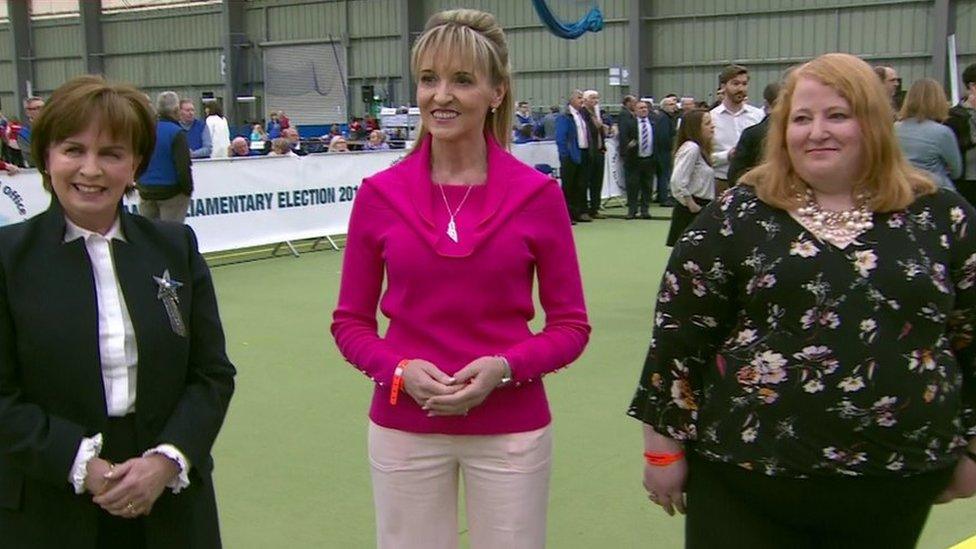A fast count and a historic Alliance surge
- Published
- comments
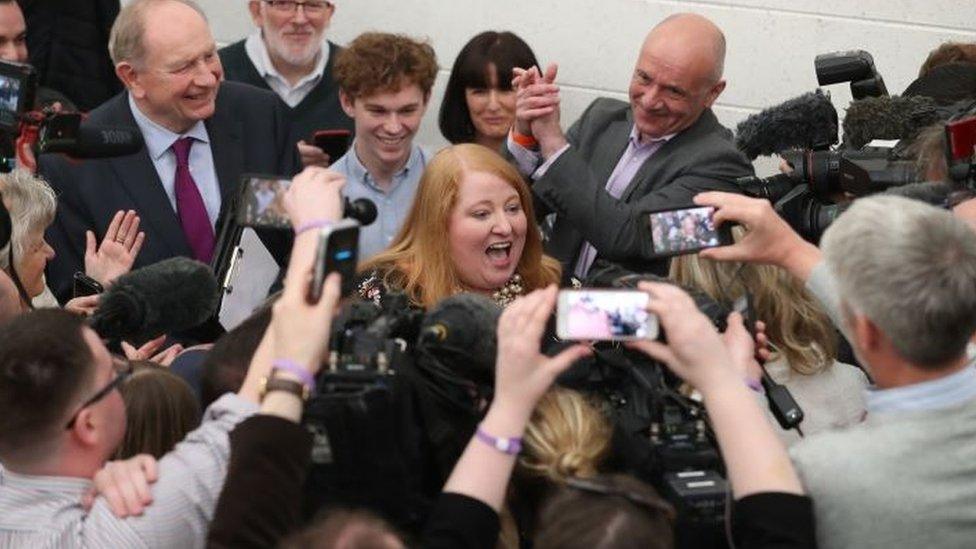
Naomi Long followed her party's strong performance in the local elections by taking the second European seat
It was an unusual election in more ways than one.
Firstly, the count was over in less than 12 hours: a rare occurrence when it comes to Northern Ireland elections because of the Single Transferable Voting (STV) system, which is by all accounts incredibly slow.
But then add to that something else - the continued rise of Alliance.
In the first few hours of the count, when it emerged that Alliance had out-polled even its best number-crunchers' predictions, it still seemed that Naomi Long would take the third seat.
For weeks, discussion had centred on the "third seat" battle.
In the end, Naomi Long secured transfers from across the political spectrum and romped home to take the second seat.
She now has many issues to discuss with her party: who does Alliance co-opt into her east Belfast assembly seat? Can a party be led from Brussels?
And the question facing all new MEPs will be: how long will they actually be in the job?
Difficult days ahead?
There are questions to answer for Sinn Féin too. Although Martina Anderson topped the poll, her vote was down from five years ago.
On top of a difficult weekend for the party in the Irish local government elections, Ms Anderson taking the last seat will not be where they will have hoped to be.
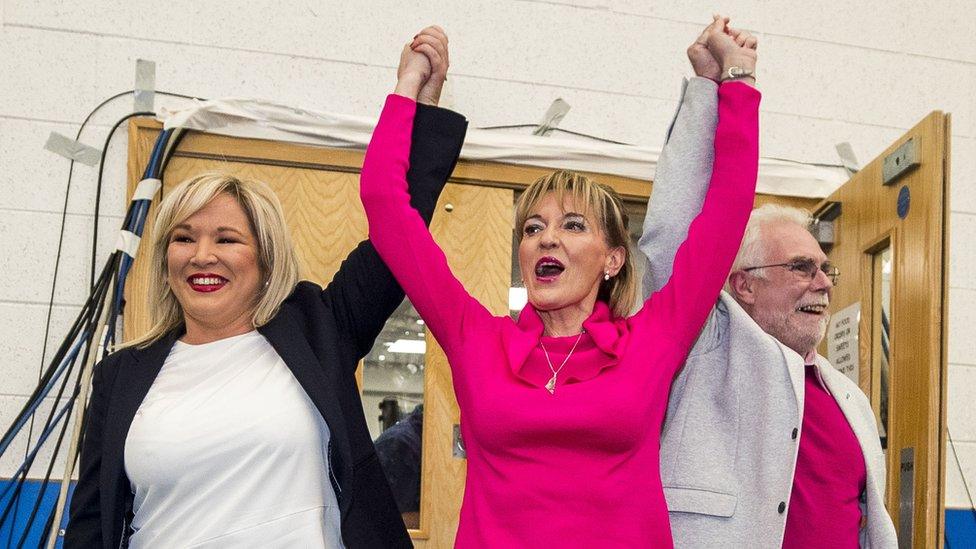
Sinn Féin said some nationalists voters had backed Naomi Long in a belief Martina Anderson was safe in her seat
That being said, the party said it wanted two pro-Remain candidates to get elected, and there were indications some nationalist voters had given Naomi Long their first preference, and put Martina Anderson second because they believed the Sinn Féin vote was strong enough to get a seat.
The DUP's Diane Dodds, who has been an MEP since 2009, saw her vote increase and DUP sources were pleased she was the first candidate to be elected - a feat they said they had not managed in a European poll since 2004, when ex-DUP-now TUV leader Jim Allister took a seat.
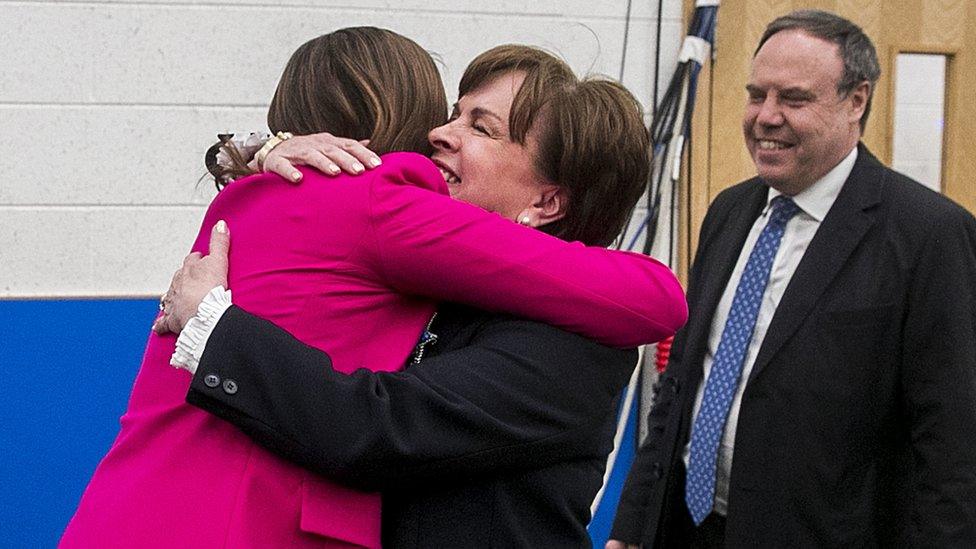
Diane Dodds was the first candidate to be elected
He was pleased with his performance this time, coming in fourth - outpolling both the Ulster Unionists and the SDLP.
That is where the other story of this election lies.
There are difficult days ahead for the Ulster Unionists. For the first time in four decades, they will have no representation in Brussels.
The party always faced an uphill struggle to hold onto the seat, with incumbent Jim Nicholson retiring, but candidate Danny Kennedy polled poorly.
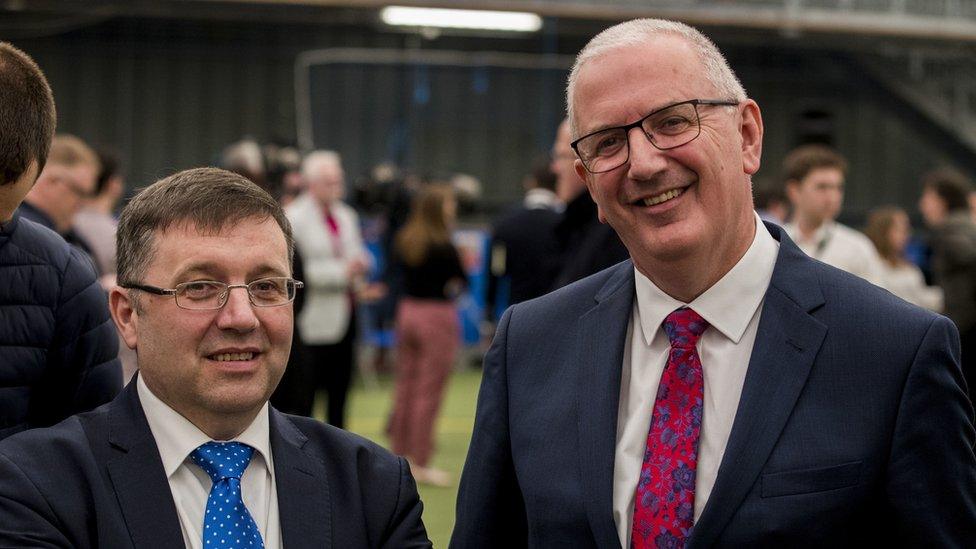
Danny Kennedy lost a seat his party has held since 1979
The criticism of the UUP in recent years has been that its message is unclear on Brexit: its members will surely now have some serious thinking to do about their strategy.
The SDLP had pinned its hopes on leader Colum Eastwood: a gamble to stand, he believed he could re-take the seat for his party and mirror the success of ex-leader John Hume - but it wasn't to be.
Prior to the election, most pundits and political anoraks predicted Alliance being in contention for the third seat.
Few would have bet on Naomi Long taking the second seat and giving Alliance its best ever election result.
There is now a sense something has changed in Northern Ireland politics.
With two incredibly successful elections within a month, Alliance says the surge is a new beginning, a sign that people want change from traditional unionist-nationalist voting patterns.
By all accounts, it's a hugely significant result - but politics is a fast-moving game.
But just as some of the more established parties will have to quickly reconsider their game plans, Alliance will have to work out how to consolidate its wins in order to build on its growth.
- Published28 May 2019
- Published27 May 2019
